On 9 November 2018, Moscow organised regional consultations on Afghanistan which were attended by the Taliban’s Qatar office and the representatives of the Afghan High Peace Council. This was the first time that the Taliban and the representatives of the Afghan government were brought together under the Moscow format of regional consultations. The consultations scheduled for September had to be cancelled because of serious objections from President Ghani who had insisted that any reconciliation should be Afghan-led.
Bringing the Taliban and the Afghan government on the discussion table was nothing short of a coup for Moscow. The American efforts to bring together the two opposing sides have so far not succeeded. Moscow has emerged as the front-runner in the Afghan reconciliation efforts, leaving the US some distance behind.Russia has been promoting six-party consultations on Afghanistan for the past several years. The last meetings were held in February and April 2018 involving Russia, Afghanistan, Pakistan, China, Iran, India and the Central Asian republics. The US was invited but did not attend. However the 9th November consultations were attended by the representative of the US Embassy in Moscow.
With Ghani government desperate for a settlement, it has been trying hard to seek an opening with the Taliban. Moscow has provided that opening.The talks took place even as the Taliban continue to expand their territorial control in parts of Afghanistan. They have carried out several high profile attacks in recent months in which Afghan National Security Forces troops and Afghan officials have been killed in large numbers.
Shift in India’s Position?
What is however of great interest is that India sent an “unofficial” delegation comprising of two of its former diplomats – Amar Sinha who was India’s Ambassador in Kabul and TCA Raghavan who was the High Commissioner in Pakistan.Both are associated with Ministry of External Affairs (MEA) funded think tanks. The Indian official spokesman clarified, "We are aware that the Russian Federation is hosting a meeting on Afghanistan on 9 November in Moscow. India supports all efforts at peace and reconciliation in Afghanistan that will preserve its unity and plurality, and bring security, stability and prosperity to the country. India's consistent policy has been that such efforts should be Afghan-led, Afghan-owned, and Afghan-controlled…Our participation at the meeting will be at the non-official level," the MEA spokesperson said.1
Although the MEA spokesperson has denied it, India's “non-official” participation in Moscow consultations where the Taliban are participating will be perceived as a major shift in its position. Indian participants reportedly attended the meeting in a listening mode and did not make any statements.2 India had so far shunned any public contact with the Taliban. Instead, it supported the Ghani government with billions of dollars of economic assistance.This won India a lot of respect in Kabul,but no influence.In the past, Taliban had attacked Indian property and killed Indian personnel in Afghanistan in several terror attacks. That had kept India from maintaining any contact with the Taliban which she has all along regarded as a terror group.
However, the situation has changed. The Taliban seem to be resurgent. Almost every country of consequence is in favour of talking with the Taliban. India was the only exception. It is possible that the Taliban may come to power in Afghanistan as a result of a deal. Not to be left isolated, the Indian government would have considered it prudent to join there conciliation consultations,even if in non-official capacity, in which the Taliban and the Afghan government’s High Peace Council both participated. India’s participation in the Moscow consultations, even at ‘unofficial level”, is an indication that the India may be looking to carve out a role for itself in the reconciliation process.It may be recalled that even during Najibullah ’s time in the late 1980s, the Indian government had kept in touch with the Mujahideen who were then fighting the Afghan regime which India was fully supporting.
What are India’s interests in Afghanistan? Any government in Afghanistan must be non-inimical to India. That is a minimum security imperative. It must not meddle in India’s affairs, particularly in respect of Kashmir. It must have normal relations with India which means allowing access to Central Asia.
It is not clear whether the Government will play an active role in Afghan reconciliation efforts or it will wait and watch the situation. Since an unofficial delegation has attended the consultations, the Government will need to cautiously watch the situation first and then decide on its role.
What role can India play in an Afghanistan settlement? It can provide economic assistance as it has been doing for years. But India will have to be watchful whether an agreement with Taliban will be acceptable to all sections of the Afghan society, particularly the Tajiks who have fought the Taliban in the past and defeated them with the help of external powers including India. Friendship with Tajiks has served India’s interests. India has traditionally been on good terms with the Tajiks who have fought the Taliban in the past as Northern Alliance. India, Iran, and Russia had supported the Northern Alliance. Will Tajiks be happy if India shifted allegiance to the Taliban? Will that be in India’s interest? Or will the Tajiks come on board with the Taliban? Can India help in that?
India’s participation in the peace talks should be welcomed as clever diplomacy but it will have to play its cards carefully. It should not alienate the friends it has won in Afghanistan nor should it support Afghanistan reverting to the medieval times.
End Game?
Talking to the Taliban comes with its own risks. Taliban have long demanded a complete withdrawal of American troops from the country. Will Trump oblige them? Who knows?Trump would most likely be inclined to cut US losses in Afghanistan. A possible but unlikely scenario is that the US withdraws unilaterally leaving President Ghani and the Taliban to their own devices. This will mean more instability and violence in the country. In the end, it may have to be a deal between the US and the Taliban. But no deal can be durable unless the US which has spent trillions of dollars and lost many lives is on board. For a durable deal, the two sides must bridge their differences.
The US and Russia have a very different view on Afghanistan. Newly appointed US peace envoy Zalmay Khalilzad has been talking to the Taliban, keeping the Afghan government out of the loop. The return of the Taliban to the government could create bloody fissures in Afghanistan.
What will be the Taliban’s agenda if they return to power? They would want the US troops and the US-backed government out. They do not recognise the Ghani government as legitimate. They have so far refused to talk to the Afghan government and are interested in talking only to the US government. It is interesting that the five Taliban prisoners released by the US from Guantanamo Bay prison in exchange for a US Army Sargent in Taliban captivity,Bowie Bergdahl, have joined the Taliban’s Qatar office and are part of Taliban negotiating team.3
Have the Taliban changed their ways? Will the youth of Afghanistan who are quite modern in outlook accept the Taliban rule? Will the Taliban be willing to tolerate women being equal to men? Will they tolerate girl education? So far, there has been no indication that Taliban have modernised their outlook.
No one knows whether the Taliban have reformed their thinking about governance. If they come to power in a triumphalist mood, they are likely to revert to their own ways. This would be damaging for regional stability.Any deal with the Taliban should ensure that the Tajiks, Uzbeks, Hazara and other ethnic groups are on board. Afghanistan has made significant gains in bringing women and children to the mainstream. The deal with the Taliban must not undo those gains.
A great game and power-play are on in Afghanistan.Sensing this, the Russian foreign minister Lavrov, in his statement at the consultations, has warned the agents of “geopolitical games” in Afghanistan. He said, "No one should think in terms of geopolitical games that may result in another transformation of Afghanistan into a field for competition between external players with drastic consequences both for the Afghans and their neighbours".4 Russia has been a strong critic of NATO air strikes in Afghanistan and has blamed the US reliance on military force as “gross miscalculation” by the US.5 But, the truth is that Afghanistan has been a playground for global and regional powers for centuries. Soviet military invasion of Afghanistan in 1979, which initiated the current round of instability was itself a result of power games by the superpowers of the time. Geopolitics cannot be separated from Afghanistan. That is an unfortunate reality.
The US is looking for an honourable exit from Afghanistan and Russia is hoping to make a comeback. China is a new player but it has maintained a low profile so far. India has kept itself out of that power-play but that also means that its options to impact on the future settlement are limited. Dealing with the Taliban may be fine from the point of view of diplomacy but whether India can have any significant influence on their thinking is a big question. It must define its objectives clearly and then make the choices. An expectation that the Taliban would have changed their behaviour will be misplaced. On the contrary, the Taliban would see any deal as a victory which would embolden them in carrying on from where they left in 2001.
Moscow would be delighted that it has brought the Taliban on the peace table and assumed a high moral ground vis-à-vis the US. However, there is no guarantee that the Moscow initiative will succeed. The Taliban are sensing victory and they will have a deal on their own terms. The international community seems to be so tired of the Afghanistan problem that it seems to be ready with a deal with the Taliban at any cost. One hopes that it will not be a bad deal. Can India ensure that? This remains to be seen.
End Notes :
- https://economictimes.indiatimes.com/news/politics-and-nation/seasoned-diplomats-raghavan-sinha-represent-india-at-moscow-format-on-afghanistan/articleshow/66551801.cms
- Indian Express, 10.11.2018.
- http://outlookafghanistan.net/editorialdetail.php?post_id=22164, Accessed on 10.11.2018.
- http://tass.com/politics/1030078, accessed on 10.11.2018.
- “Russia outraged at NATO’s near daily ‘erroneous’ strikes in Afghanistan”, A statement by the Russian foreign ministry on 27.09.2018, http://tass.com/politics/1023318, Accessed on 10.11.2018
Image Source: https://www.aljazeera.com/mritems/imagecache/mbdxxlarge/mritems/Images/2018/11/9/ba611b71bc114218b84ca8798ce7d28d_18.jpg

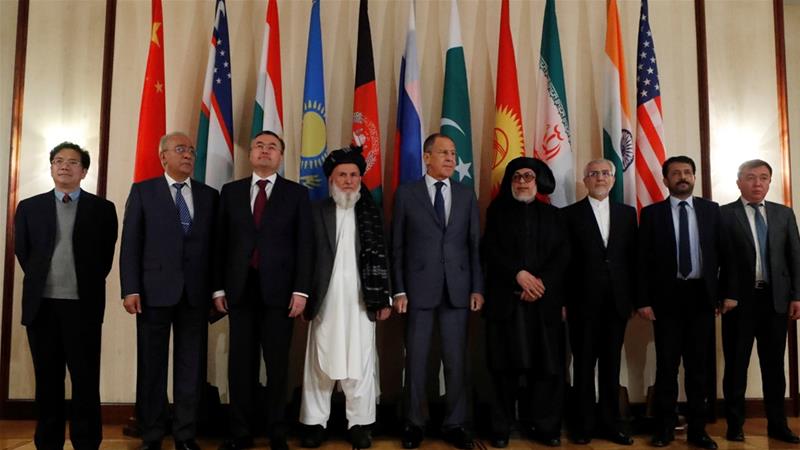
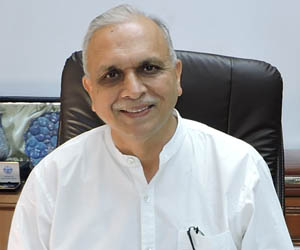

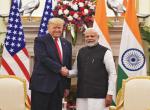
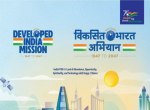
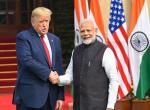

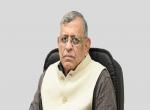


Post new comment